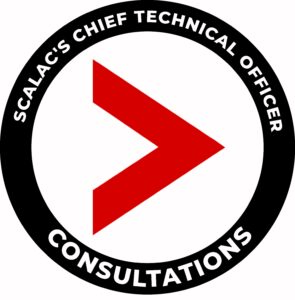
Outsourcing Software Development: What You Need to Know

As businesses become more and more reliant on technology, the need for software development grows.
But what happens when a business doesn’t have the resources or time to develop its own software?
They can outsource it, of course!
By outsourcing software development, you can expedite the process – but there are a few things you need to keep in mind before you make the decision.
If outsourcing is something you’ve been considering as a way to save money and improve your product’s quality, this blog post is for you.
Today, we’ll discuss:
- what outsourcing really is;
- why the benefits of outsourcing software development are;
- how outsourcing has become such an attractive business decision today;
- what are the risks and challenges of outsourcing software development;
- how can you get your business started at outsourcing.
Fasten your seat belt – we’re starting right now.
What is outsourcing software development?
Outsourcing software development is the process of contracting out the development of software components or entire applications to third-party vendors.
It has become increasingly popular in recent years as companies have come to realize the benefits of offloading some or all of their software development needs to a third party.
The most common reasons for outsourcing software development are:
- time-saving and cost optimization aspects: outsourcing company can deliver the final product quicker than in-house team or local experts
- access to external talent pool: outsourcing is borderless – by sending projects worldwide, you can ensure the best team is working on them
- fresh perspective: outsourcing companies who were not associated with your project before can bring a brand new angle to your project
Outsourcing software development has seen a boom in popularity, and there is data to back this claim. Statista estimates that IT services spending will reach almost $1,4 billion USD by 2023 worldwide and been increasing since 2015.
This goes hand in hand with the analysis of global oursourcing market trend – growing since 2016 to 2019 (no data for 2021 available at the moment of writing this article).
What does it mean in practice?
Outsourcing though is increasingly seen as a route for growth that’s exponential and sustainable, as opposed to a one-time thing.
For example, did you know that professional software teams from Eastern Europe handled the majority of the core development of Whatsapp?
And Whatsapp generated between 5-10 billion dollars for the Facebook franchise in 2020.
Even though numbers speak for themselves, you may need more convincing. Keep reading for further benefits of outsourcing software development.
Outsourcing software development: benefits
#1 Outsourcing software development can save you time and money
By contracting out your software development to a third party, you can avoid having to hire and manage in-house developers. This can save you money on salaries, benefits, and office space – just to name a few examples.
That’s not a new thing, either. Even MIT research from almost 25 years (!) ago back this data:
In our study, based on data from approximately 300 U.S. companies over the 1999-2003 period, we found that a $96.14 million increase in IT outsourcing spending by a company was associated with, on average, a $121.14 million drop in operating costs in other, non-IT functions at the company.
It’s been 20 years, and both time and cost savings are unchanged. As soon as you compare the hourly rates and salaries in the IT industry in CEE countries to those in Western Europe or the US, you will notice the advantage CEE has.
The salary for a software developer from Poland is provided below:
100k PLN is roughly 23k USD.
The average salary on the same position in the US is around 73k USD – which means you could hire three developers for this price in Poland.
This pretty much speaks for itself, right?
#2 Improved quality, turnaround, and time to market
Your company’s other areas of operation can benefit from outsourcing software development.
Outsourcing software development allows you to avoid expensive hardware and software investments. It is the outsourcing company’s responsibility to fill out all these details and requirements. You don’t take liability for the devices or programs they need to complete your project on time.
Furthermore, you can outsource to developers all over the world and build a project team from scratch without even meeting your team in person. This generates even further cost savings on top of what we mentioned in the previous point. Recruiting and retaining developers in-house is no longer necessary since the outsourced development team will handle everything. Often, you get more improved outcomes than you’d access within your own resources.
Additionally, outsourcing your software development projects can help you solve technical debt in your company. While it won’t be a panacea for all of your organizations’ aches and pains, it can give you a tangible sense of relief.
That’s how we helped Versal. As the organization works globally, they needed to keep pace with both the rapid growth of their platform, as well as meet the demands of their customers. We were hired to help them avoid the above-mentioned technical debt. Check how we’ve done it.
#3 Mutual development and growth
When you outsource software development, the sky is the limit.
You can have your developers create anything you want – from a simple website to a complex enterprise application. Since you have access to a wide talent pool, you can mix and match capabilities and skills.
You can also take advantage of new technologies and trends that may not be available in-house when you outsource. Since an offshore development team can often work on projects at a fraction of the cost of hiring a similar team in-house, you can develop even more and better further ideas with them and grow your business, growing their own team as well.
Slack has employed an outsourcing firm not for developing their bespoke app, but to beta test it. By collecting feedback on what worked and what didn’t, Slack was able to build a solution that businesses have been appreciating for years now.
What are the risks associated with outsourcing software development
Is it all rainbows and butterflies? This doesn’t need to be the case, especially if you’re not prepared for the process (we’ll discuss this later on) or if your outsourcing software development partner is not delivering.
#1 The actual outsourcing
The most important risk associated with outsourcing software development is that you’re relying on a company to do the work for you, and if they don’t do it well or don’t complete it in time, then your business will suffer. Make sure you do your research on potential outsourcing partners and ask for references before signing any contracts.
#2 Cultural differences
Another risk is that there may be cultural differences between the company and your team, which could lead to miscommunication and disagreement about how things should be done. When working with a team from another country, it’s crucial to make sure that everyone is on the same page culturally. This includes understanding things like how people communicate, what their work ethic is like, and what their values are.
#3 Clumsy verification
A third risk is that if the outsourced staff has limited experience with your industry or niche market, they may not understand what’s required of them and end up making costly errors. To avoid this, be sure to have a very clear and detailed project plan in place that outlines all expectations for the team. You may also want to consider having a third-party verification process in place to catch any errors before they become costly.
#4 Lack of control
Finally, another significant risk of outsourcing software development services is lack of control over quality – because you’re paying someone else to do this work for you instead of doing it yourself as part of your own team, you have no way to ensure that the final product will meet all requirements. To overcome this, always ask for regular status updates so you can track how the project is progressing.
#5 Various risks
There are also risks associated with hiring an overseas developer – namely:
- language barriers (especially when communicating details about design),
- culture clashes (such as different expectations around working hours),
- internet connectivity issues (which can cause delays in getting feedback on new ideas),
just to name a few.
It is important to note here, however, that if outsourcing software development were a failure, businesses all around the world wouldn’t decide to carry it out.
It all comes down to preparing properly – and knowing what to look for.
How and where to proceed with outsourcing software development?
The selection of an outsourcing software development company should be based on thorough research, as there are many different companies that provide the service. Take your time when selecting a provider!
#1 What do you really, really want?
You should have a clear idea of what you want the software to do and how you want it to look before outsourcing software development.
Provide comprehensive specifications and drawings so that the development team can understand your requirements. Make sure you’re ready to maintain close communication with the chosen company throughout the project so that any changes or updates can be made quickly and efficiently. Be prepared to devote some time to this on your own as well.
Before outsourcing any part of your software development, it’s crucial to weigh the pros and cons and do your due diligence in researching potential vendors.
#2 Reputation first
Make sure the company you choose has a good reputation and is capable of completing the type of project you need.
You want to be working with a company that has a proven track record of delivering high-quality software.
You can check a company’s reputation by reading reviews from past clients, checking out their website, and searching for news articles about them.
By choosing a reputable development provider, you can be confident that you’re making a wise investment and that you’ll be satisfied with the final product.
#3 Ask for references
Ask the company to provide you with references from past clients, and contact these clients to ask about their experience working with the company.
Do it to:
- get an idea of their previous work and whether or not they’re able to deliver on what they promise
- gauge their level of experience and expertise
- see if they have a good working relationship with their past clients
- find out if they’re communicative and easy to work with
- make sure they’re reputable and trustworthy
Ultimately, checking references is a way to help you better assess whether or not a particular software development provider is right for your project.
One of the best sources for this kind of information is Clutch.

an example of a Clutch review for Scalac
#3 Discuss all details
The project requirements and timeline should be discussed in detail before starting the project. Make sure all expectations are clear on both sides to avoid any misunderstandings during the collaboration.
A few questions are also appropriate at this point – it may be too early or too late to cover them otherwise. We’ve actually created a handy list of questions to ask your software development partner.
#4 Set up regular status updates
You should expect to receive regular status updates from the development team so you can track how the project is progressing. This will help ensure that all expectations are being met and that there are no surprises along the way.
This step may seem like overkill for many, but it can save you a lot of headaches down the road.
The collaboration may take place via meetings, kanban boards, phone calls, texts, or daily standups – whatever suits your business model and preferences best.
#6 Evaluate their work
Make sure to evaluate the final product against your original requirements to ensure that it meets all expectations. If not, you may need to consider hiring a different development company for future projects.
Outsourcing is known by many names. You can use our comparison to find out if offshoring, nearshoring, or classic outsourcing is right for your company.
Over to you
Outsourcing software development can be a great way to get high-quality, cost-effective services – but it’s important to do your research before choosing a development company.
By following these tips, you’ll be well on your way to finding a great development partner that can help your business achieve its goals. Good luck!











